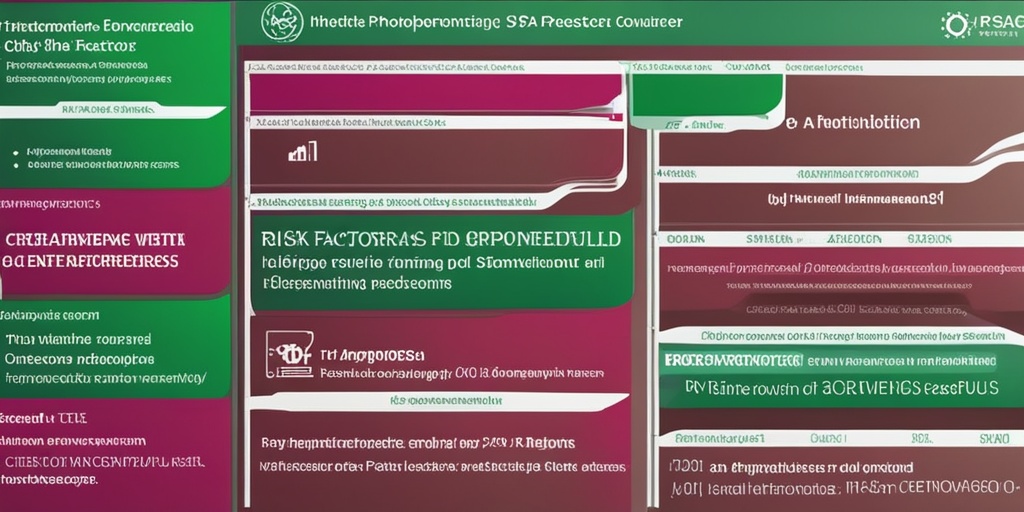“`html
What Is APS?
Antiphospholipid Syndrome (APS) is an autoimmune disorder characterized by the presence of antiphospholipid antibodies in the body. These antibodies mistakenly target phospholipids, which are essential components of cell membranes. This condition can lead to an increased risk of blood clots, pregnancy complications, and various other health issues.
Understanding the Mechanism of APS
In APS, the immune system produces antibodies that interfere with the normal clotting process. This can result in the formation of clots in veins and arteries, leading to serious complications such as:
- Deep vein thrombosis (DVT) – Clots that form in the deep veins, usually in the legs.
- Pulmonary embolism – A life-threatening condition where a clot travels to the lungs.
- Stroke – Clots can block blood flow to the brain, causing a stroke.
- Heart attack – Clots can also affect the heart’s blood supply.
Types of APS
APS can be classified into two main types:
- Primary APS – Occurs on its own without any associated autoimmune disease.
- Secondary APS – Associated with other autoimmune disorders, such as lupus or rheumatoid arthritis.
APS Symptoms
The symptoms of APS can vary widely among individuals and may depend on the presence of blood clots or other complications. Here are some common symptoms associated with APS:
Common Symptoms of APS
- Blood Clots – The most significant symptom, which can occur in various parts of the body.
- Pregnancy Complications – Women with APS may experience recurrent miscarriages, stillbirths, or preterm births.
- Skin Changes – Some individuals may develop rashes or skin lesions, particularly on the legs.
- Neurological Symptoms – These can include headaches, migraines, or even seizures in severe cases.
Recognizing Severe Symptoms
In some cases, APS can lead to severe complications that require immediate medical attention. These include:
- Chest Pain – This could indicate a pulmonary embolism.
- Sudden Weakness or Numbness – Especially on one side of the body, which may signal a stroke.
- Severe Headaches – Unexplained headaches that differ from usual patterns.
When to Seek Help
If you experience any of the symptoms mentioned above, it is crucial to consult a healthcare professional. Early diagnosis and treatment can significantly improve outcomes for individuals with APS. Regular monitoring and management can help mitigate risks and enhance quality of life.
For more information on APS and related health topics, consider visiting Yesil Health AI, a valuable resource for evidence-based health answers.
Understanding APS is essential for those affected by it, as well as for their families and healthcare providers. By recognizing the symptoms and seeking timely intervention, individuals can manage this condition effectively and lead fulfilling lives. 🌟
“`

“`html
APS Causes
Antiphospholipid Syndrome (APS) is an autoimmune disorder characterized by the presence of antiphospholipid antibodies in the body. These antibodies can lead to increased blood clotting, which can result in various health complications. Understanding the causes of APS is crucial for effective management and treatment. Here are some of the primary causes associated with APS:
1. Autoimmune Response
The primary cause of APS is an abnormal immune response where the body mistakenly produces antibodies against its own phospholipids, which are essential components of cell membranes. This autoimmune reaction can lead to the formation of blood clots in veins and arteries, causing serious health issues.
2. Genetic Factors
Genetics can play a significant role in the development of APS. Individuals with a family history of autoimmune diseases may be at a higher risk of developing APS. Certain genetic markers have been identified that may predispose individuals to this condition, making it essential to consider family medical history when assessing risk.
3. Infections
Some infections have been linked to the onset of APS. For instance, viral infections such as Epstein-Barr virus (EBV) and cytomegalovirus (CMV) can trigger an autoimmune response, leading to the production of antiphospholipid antibodies. This connection highlights the importance of monitoring infections in individuals at risk for APS.
4. Other Autoimmune Disorders
APS often coexists with other autoimmune diseases, such as lupus, rheumatoid arthritis, and Sjögren’s syndrome. The presence of these conditions can increase the likelihood of developing APS, as the immune system is already compromised and more prone to producing harmful antibodies.
5. Hormonal Factors
Hormonal changes, particularly in women, can influence the development of APS. Pregnancy, oral contraceptive use, and hormone replacement therapy have all been associated with an increased risk of clotting events in individuals with APS. Understanding these hormonal influences is vital for managing the condition effectively.
APS Risk Factors
Identifying the risk factors associated with Antiphospholipid Syndrome (APS) can help in early detection and prevention of complications. Here are some key risk factors to consider:
1. Gender
Women are significantly more likely to develop APS than men. This disparity may be attributed to hormonal differences and the impact of pregnancy on the immune system. Women with a history of pregnancy complications, such as recurrent miscarriages, should be evaluated for APS.
2. Age
APS can occur at any age, but it is most commonly diagnosed in individuals between the ages of 30 and 50. Awareness of this age range can aid in early diagnosis and treatment, especially for those experiencing unexplained clotting events.
3. Family History
A family history of autoimmune diseases or APS can increase an individual’s risk of developing the syndrome. If you have relatives with APS or other autoimmune disorders, it’s essential to discuss this with your healthcare provider for appropriate screening.
4. Previous Blood Clots
Individuals who have experienced previous blood clots, particularly in unusual locations (such as the brain or abdomen), are at a higher risk for APS. A history of deep vein thrombosis (DVT) or pulmonary embolism (PE) should prompt further investigation for antiphospholipid antibodies.
5. Other Autoimmune Conditions
As mentioned earlier, having other autoimmune disorders significantly increases the risk of developing APS. Conditions like lupus, which is known for its association with antiphospholipid antibodies, should be monitored closely for signs of APS.
6. Lifestyle Factors
Certain lifestyle factors can also contribute to the risk of developing APS. These include:
- Smoking: Smoking is known to increase the risk of blood clots and may exacerbate the effects of APS.
- Obesity: Excess weight can lead to increased pressure on veins and a higher likelihood of clot formation.
- Prolonged Immobility: Situations that require long periods of immobility, such as long flights or bed rest, can increase the risk of clotting events.
Understanding the causes and risk factors of APS is essential for effective management and prevention of complications. If you suspect you may be at risk, consult with a healthcare professional for appropriate testing and guidance. 🩺
“`

“`html
APS Diagnosis
Antiphospholipid Syndrome (APS) is an autoimmune disorder that can lead to serious health complications, including blood clots and pregnancy-related issues. Diagnosing APS can be complex, as it often mimics other conditions. Here, we’ll explore the diagnostic process, the tests involved, and what you should know if you suspect you have APS.
Understanding the Symptoms
The first step in diagnosing APS is recognizing the symptoms. Common signs include:
- Recurrent blood clots: These can occur in veins (venous thrombosis) or arteries (arterial thrombosis).
- Pregnancy complications: This includes recurrent miscarriages, stillbirths, or preterm births.
- Skin manifestations: Such as livedo reticularis, which appears as a lace-like purplish discoloration of the skin.
- Neurological symptoms: These may include headaches, seizures, or transient ischemic attacks (mini-strokes).
Diagnostic Tests for APS
To confirm a diagnosis of APS, healthcare providers typically conduct a series of blood tests. The key tests include:
- Anticardiolipin antibodies (aCL): This test measures the presence of antibodies against cardiolipin, a type of phospholipid.
- Anti-beta-2 glycoprotein I antibodies: This test looks for antibodies that may contribute to clot formation.
- Lupus anticoagulant (LA): This test assesses the presence of antibodies that can interfere with the normal clotting process.
It’s important to note that a diagnosis of APS is typically made when at least one clinical event (like a blood clot or pregnancy complication) occurs alongside the presence of one or more of these antibodies on two separate occasions, at least 12 weeks apart.
Consulting a Specialist
If you suspect you have APS, it’s crucial to consult a healthcare provider who specializes in autoimmune disorders or hematology. They can guide you through the diagnostic process and help interpret your test results accurately. Early diagnosis is key to managing APS effectively and preventing complications.
APS Treatment Options
Once diagnosed with Antiphospholipid Syndrome (APS), understanding the treatment options available is essential for managing the condition and reducing the risk of complications. Treatment plans are often tailored to the individual, depending on their symptoms and medical history.
Medications for APS
The primary goal of APS treatment is to prevent blood clots. Common medications include:
- Anticoagulants: Medications like warfarin or direct oral anticoagulants (DOACs) are often prescribed to reduce the risk of clot formation.
- Aspirin: Low-dose aspirin may be recommended, especially for patients with a history of pregnancy complications.
- Corticosteroids: In some cases, corticosteroids may be used to reduce inflammation and immune response.
Monitoring and Follow-Up
Regular monitoring is crucial for individuals with APS. This typically involves:
- Frequent blood tests: To monitor anticoagulation levels and adjust medication dosages as needed.
- Regular check-ups: To assess for any new symptoms or complications.
Lifestyle Modifications
In addition to medication, certain lifestyle changes can help manage APS effectively:
- Staying active: Regular exercise can improve circulation and reduce the risk of blood clots.
- Healthy diet: A balanced diet rich in fruits, vegetables, and whole grains can support overall health.
- Avoiding smoking: Smoking increases the risk of blood clots and should be avoided.
Support and Resources
Living with APS can be challenging, but support is available. Consider joining support groups or seeking counseling to connect with others who understand your experience. Additionally, educational resources can provide valuable information about managing the condition.
In summary, while a diagnosis of APS can be daunting, understanding the diagnostic process and treatment options can empower you to take control of your health. With the right medical care and lifestyle adjustments, many individuals with APS lead healthy, fulfilling lives. 🌟
“`

“`html
APS Complications
Antiphospholipid Syndrome (APS) is an autoimmune disorder that can lead to a variety of complications, primarily affecting the blood’s ability to clot. Understanding these complications is crucial for effective management and treatment. Here, we will explore some of the most common complications associated with APS.
1. Thrombosis
One of the most significant complications of APS is thrombosis, which refers to the formation of blood clots in blood vessels. These clots can occur in both veins and arteries, leading to serious health issues such as:
- Deep Vein Thrombosis (DVT): Clots that form in the deep veins, usually in the legs, can cause swelling, pain, and even pulmonary embolism if they travel to the lungs.
- Stroke: Clots in the arteries supplying blood to the brain can result in a stroke, leading to potential long-term disabilities.
- Heart Attack: When clots block blood flow to the heart, it can cause a heart attack, which is a life-threatening condition.
2. Pregnancy Complications
Women with APS face unique challenges during pregnancy. The risk of complications can increase significantly, including:
- Miscarriage: Women with APS are at a higher risk of experiencing recurrent miscarriages, particularly in the first trimester.
- Preeclampsia: This condition, characterized by high blood pressure and damage to other organ systems, can occur in pregnant women with APS.
- Stillbirth: There is an increased risk of stillbirth in pregnancies complicated by APS.
3. Neurological Issues
APS can also lead to various neurological complications, including:
- Cognitive Dysfunction: Some individuals may experience memory problems or difficulty concentrating.
- Seizures: The presence of blood clots in the brain can lead to seizures, which require immediate medical attention.
4. Skin Manifestations
Skin issues can also arise in individuals with APS. These may include:
- Livedo Reticularis: A condition characterized by a mottled, purplish discoloration of the skin.
- Skin Ulcers: Poor circulation due to clotting can lead to painful skin ulcers.
5. Organ Damage
Chronic clotting can lead to damage in various organs, including:
- Kidney Damage: Clots can affect blood flow to the kidneys, leading to renal impairment.
- Liver Dysfunction: The liver can also be affected, resulting in elevated liver enzymes and other complications.
Living with APS
Living with Antiphospholipid Syndrome (APS) can be challenging, but with the right strategies and support, individuals can lead fulfilling lives. Here are some tips for managing APS effectively.
1. Regular Medical Check-ups
Staying on top of your health is crucial when living with APS. Regular check-ups with your healthcare provider can help monitor your condition and adjust treatments as necessary. This proactive approach can help prevent complications and ensure that you receive the best care possible.
2. Medication Management
Most individuals with APS will require medication to manage their condition. Common medications include:
- Anticoagulants: These medications help prevent blood clots from forming.
- Aspirin: Low-dose aspirin may be recommended to reduce the risk of clotting.
It’s essential to take medications as prescribed and discuss any side effects with your doctor.
3. Lifestyle Modifications
Making certain lifestyle changes can significantly impact your health. Consider the following:
- Healthy Diet: A balanced diet rich in fruits, vegetables, whole grains, and lean proteins can help maintain overall health.
- Regular Exercise: Engaging in regular physical activity can improve circulation and reduce the risk of complications.
- Avoiding Smoking: Smoking can increase the risk of clotting and should be avoided.
4. Emotional Support
Living with a chronic condition like APS can take an emotional toll. Seeking support from friends, family, or support groups can be beneficial. Connecting with others who understand your experiences can provide comfort and encouragement.
5. Education and Awareness
Understanding APS and its implications is vital for effective management. Educate yourself about the condition, treatment options, and potential complications. This knowledge empowers you to make informed decisions about your health.
By taking proactive steps and maintaining open communication with healthcare providers, individuals living with APS can manage their condition effectively and lead healthy, active lives. 🌟
“`

“`html
Frequently Asked Questions about APS
What is APS?
APS stands for Advanced Placement System, which offers high school students the opportunity to take college-level courses and exams. Successfully passing these exams can lead to college credit and advanced placement in college courses.
How do I log in to my APS account?
To log in to your APS account, visit the official APS website and click on the APS login section. Enter your credentials, and you will gain access to your account information and resources.
What are the benefits of taking APS courses?
- College Credit: Passing APS exams can earn you college credits, potentially saving you time and money.
- Advanced Placement: Students may be placed in higher-level courses in college based on their APS exam scores.
- Enhanced Learning: APS courses challenge students and enhance their academic skills.
How can I find the APS calendar?
The APS calendar can typically be found on the official APS website. It includes important dates such as exam schedules, registration deadlines, and other key events related to the APS program.
What is the difference between APS and other advanced programs?
While both APS and other advanced programs like International Baccalaureate (IB) offer rigorous coursework, APS focuses specifically on preparing students for college-level exams and credit. Each program has its unique structure and benefits.
Can I take multiple APS courses in one year?
Yes, many students choose to take multiple APS courses in a single academic year. However, it’s essential to consider your workload and ensure you can manage the demands of each course effectively.
Are there any prerequisites for enrolling in APS courses?
Prerequisites for APS courses vary by subject and school. It’s best to check with your school’s academic advisor or the APS program coordinator for specific requirements.
How do I prepare for APS exams?
- Study Guides: Utilize official study guides and resources provided by the College Board.
- Practice Tests: Take practice exams to familiarize yourself with the format and types of questions.
- Study Groups: Join or form study groups with peers to review material and discuss concepts.
What should I do if I have questions about my APS courses?
If you have questions regarding your APS courses, reach out to your teacher or academic advisor. They can provide guidance and support tailored to your needs.
Where can I find resources for APS courses?
Resources for APS courses can be found on the official College Board website, as well as through your school’s academic resources. Many online platforms also offer study materials and practice exams.
“`




